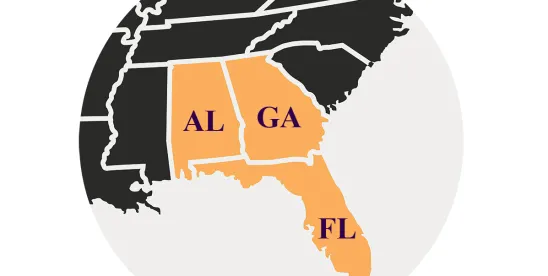Does a furnisher always have reach the “right” answer when it investigates a consumer’s credit reporting dispute? Or does the furnisher just have to engage in a “reasonable” investigation of the dispute before responding? In Milgram v. Chase Bank USA, N.A, _F.4th_, 2023 U.S. App. LEXIS 14299 (11th Cir. 2023), the Eleventh Circuit affirmed entry of summary judgment in favor of credit card issuer Chase Bank USA, N.A. on a claim under section 1681s-2(b) of the Fair Credit Reporting Act. The Milgram Court held the Bank had conducted a reasonable investigation, even though it had been presented with evidence that the disputed charges were incurred by an employee of the cardholder who had been convicted of multiple felonies.
In Milgram, plaintiff’s employee opened a credit card with Chase using plaintiff’s name, ran up tens of thousands of dollars of charges, and then illegally accessed plaintiff’s bank accounts to make payments in response to the monthly statements. See Milgram, 2023 U.S. App. LEXIS 14299, at *2. When plaintiff discovered the fraud, she reported it to Chase, but Chase refused to treat the charges as illegitimate, concluding that the consistent payments made from an account owned by plaintiff reflected that the employee had “apparent authority” to incur the charges. Id. at *3. The district court granted summary judgment for Chase on plaintiff’s FCRA claims, concluding that the Bank’s investigating had been “reasonable” and the Eleventh Circuit affirmed. Id.
The facts in Milgram seemed to weigh heavily in favor of the consumer. Indeed, when plaintiff submitted her dispute in November of 2018, her former employee had already plead guilty to “seven counts of grand theft in the second and third degree, criminal use of personal identification information, and defrauding a financial institution” and had been sentenced to three years in prison. Id. at *7. Plaintiff attached to her dispute a Florida state court order which recognized that the employee had fraudulently opened the Chase card and had transferred money to make the payments without plaintiff’s permission. Id. In response to the consumer’s dispute, Chase re-verified that plaintiff was responsible for the charges. Id.
When ruling in favor of Chase, the Eleventh Circuit noted “that consumers cannot sue furnishers [under the FCRA] for providing inaccurate information - only for conducting unreasonable investigations.” Id. at *12 (citations omitted). The reasonableness of the investigation varies based upon the circumstances, including the identity of the furnisher, the information it has available to it and what steps the furnisher takes to gather more information. Id. at *12-13. If the furnisher verifies the information it has furnished, then the “question of whether the furnisher behaved reasonably will turn on whether the furnisher acquired sufficient evidence to support the conclusion that the information was true.” Id. at *13. A consumer cannot prevail on a claim under section 1681s-(2)(b) unless she 1) proves the furnisher provided inaccurate or incomplete information to a consumer reporting agency, and 2) points out “some facts the furnisher could have uncovered that establish that the reported information was, in fact, inaccurate or incomplete.” Id.
Ultimately, the Eleventh Circuit concluded that Chase’s investigation was reasonable, because plaintiff could not point to any fact that would have undercut Chase’s determination that plaintiff had vested her employee with apparent authority to use the card. The Court observed: “We don't think the criminal judgment was relevant to Chase's apparent-authority determination. To be sure, Williams's criminal judgment proved that Williams lacked actual authority. But Milgram's automatic payments to pay off the card each month led Chase to conclude that Williams had authority to incur those charges. That Williams didn't actually have that authority doesn't undercut that conclusion; it doesn't go to apparent authority at all.” Id. at *19.




 />i
/>i
